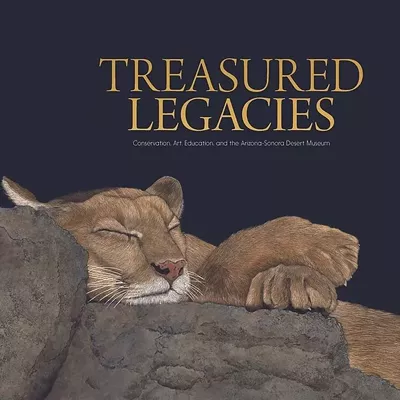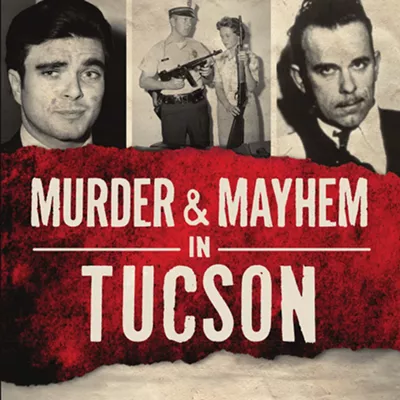If a young woman were to ask me for advice on how she might find her way in a society that seems to want her to make an honest stab at raising children, bringing home the bacon and finding that phantom "fulfillment"—all before her 40th birthday—I would hand her a copy of A Volume of Friendship: The Letters of Eleanor Roosevelt and Isabella Greenway, 1904-1953.
Through hundreds of chatty, effusive, sad and occasionally profound letters written over some 50 years of friendship, these two famous women supported each other from near-girlhood into old age. Though they lived for most of their lives on opposite coasts—and Greenway, Arizona's first congresswoman and the founder of the still-fabulous Arizona Inn, spent many years in the wilderness of New Mexico—their relationship only deepened and evolved over time.
One of the more revealing sections of A Volume of Friendship, out now from the Arizona Historical Society, shows how integral Roosevelt was in spurring Greenway into politics, and how important Greenway was in helping the Roosevelts sell the New Deal to Westerners. Their mutual desire—indeed, their "elite" sense that it was their duty as wealthy Americans—to help the less fortunate, coupled with a twinge of jealousy and competition between them that comes through in some of the letters, seems to have helped both women reach public heights that neither would have dreamed of when they honeymooned together as young married women. One gets the sense that neither would have become the person we now admire without the other's friendship.
Nearly 20 years into their friendship, Greenway's first husband, whom she had followed to the Southwest in a fruitless search for respite from his tuberculosis, finally succumbed to the disease. Roosevelt wrote these words to her grieving friend: "When you come to my age and chapters begin to close in life, I suppose there must always be some regrets that that future is at an end. We count so much on the future without realizing it."
Within the next decade or so, both women would begin to create their own futures in earnest, and in doing so, they would remake the nation's political landscape and, really, our concept of what an American woman could be.
Had either woman died before she turned 40—which wasn't hard to do in those days—the letters they left behind, and indeed their lives, would be of only passing interest to most. While the letters of the pre-New Deal days often mention politics (the Roosevelts were always a rising couple), they are mostly newsy missives about childrearing, visiting relatives and, always, book recommendations. They are also full of those confusing pronouncements of love and devotion that today can't help but raise an eyebrow.
Later, as both women sent their children off into the world and busied themselves trying to make that world a better place, the letters become more pragmatic, urgent even. Many ask a favor for a constituent, or request support on some issue of the day. They are networking, as women have always done it. It seems they smoothly allowed their relationship to evolve from one centered primarily on the hearth to one that encompassed the whole world—even though that world still mostly belonged to men.
If the aforementioned imaginary young woman were looking for a model by which to attempt to live an honest life in America, she could do a lot worse than to look to these two women. They were mothers, politicians, entrepreneurs, wives and, perhaps most important, friends. Sure, they were both rich, had servants and could send their kids off to boarding school; sure, they were both connected to the elite classes in both America and Europe. But that just means that they could have done nothing and gotten away with it. Instead, they did just about everything a woman—or a man—can hope to do in this life.
Too often, I see a new book about some arcane subject, and I ask myself: Why? However, A Volume of Friendship, though certainly not for everyone, is a fully justified project: It preserves for future generations a unique, important and uplifting friendship. And what could be more important than that?







